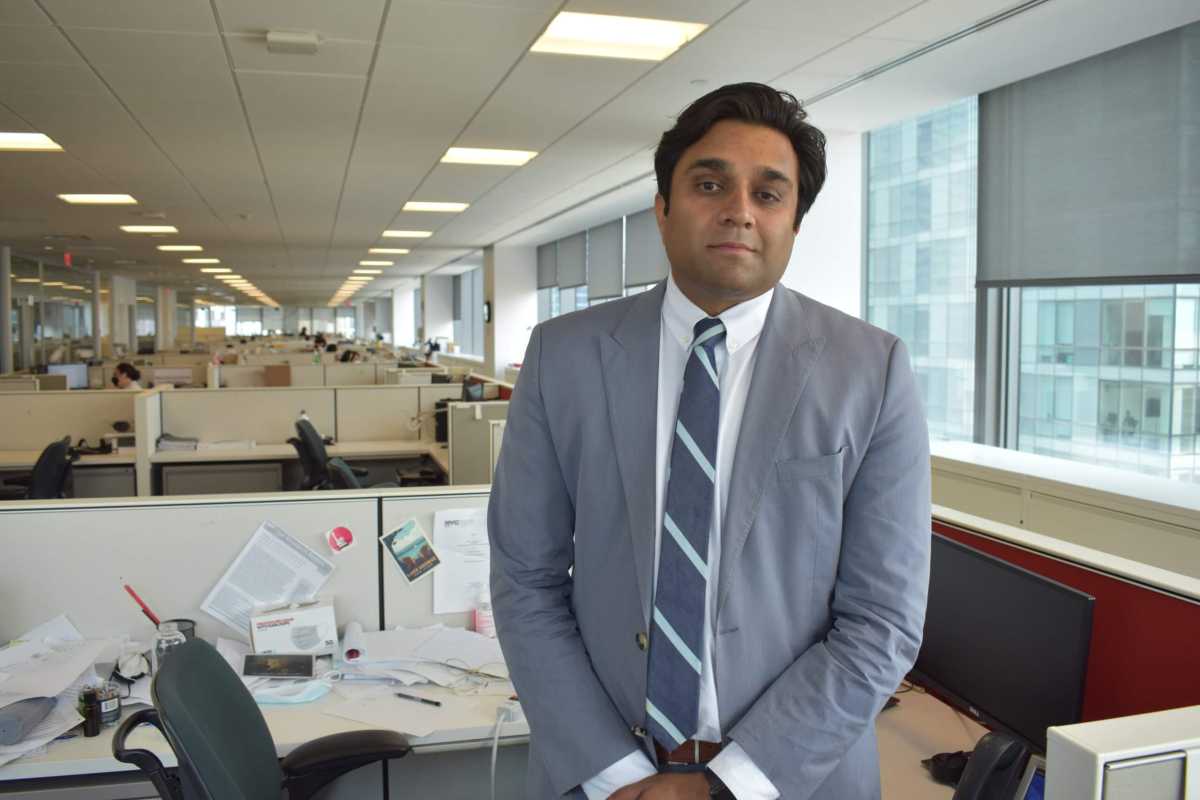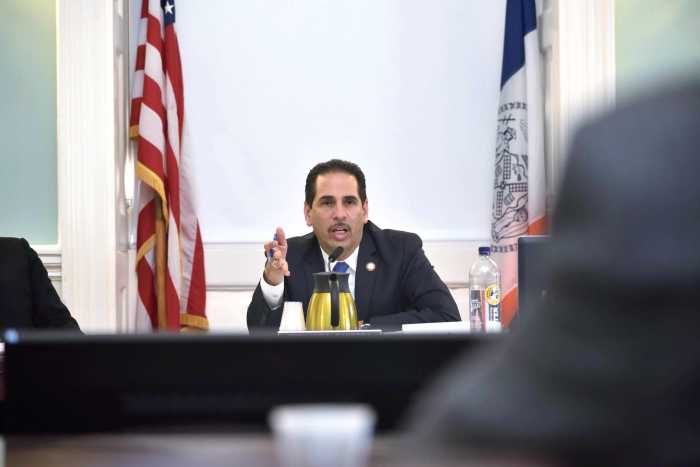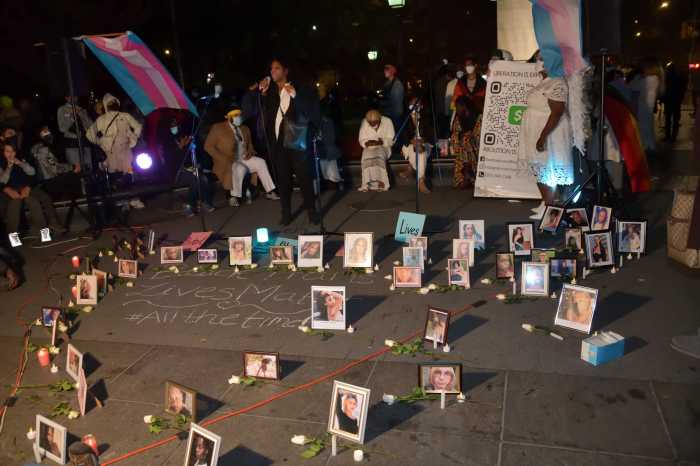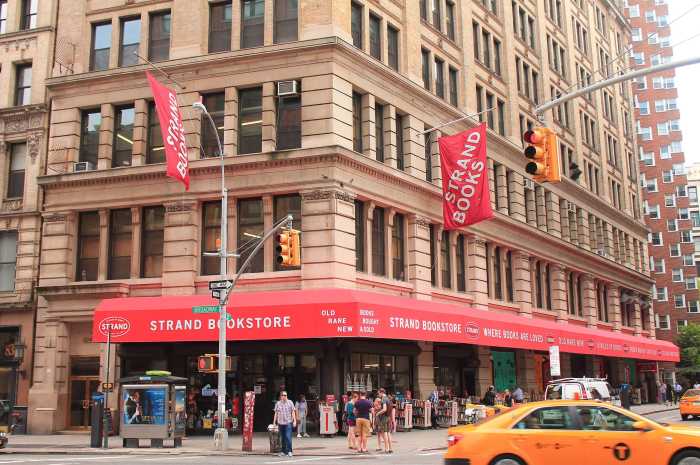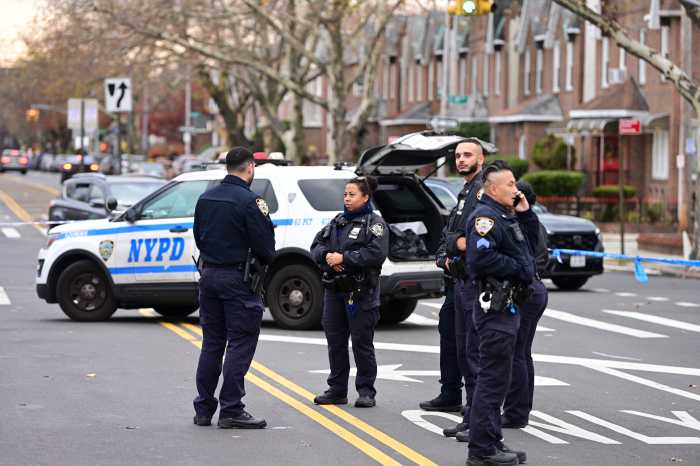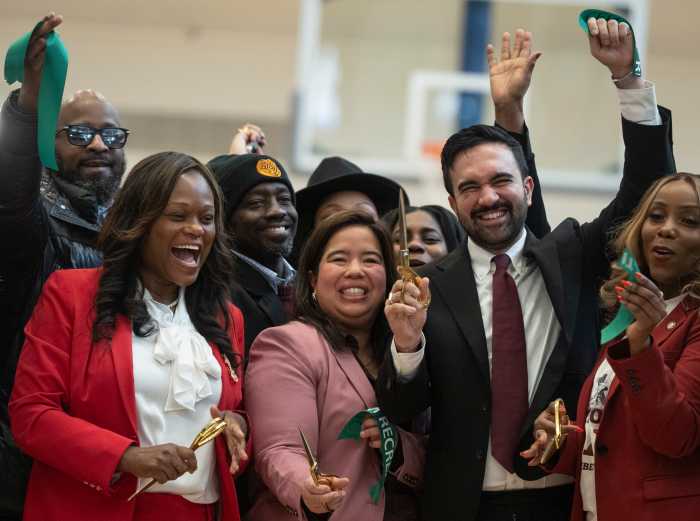City Health Commissioner Ashwin Vasan was sitting down for an interview with Gay City News just minutes before the latest round of monkeypox vaccine appointments were made available online in New York City on July 12. Monkeypox cases have been on the rise — the city had at least 260 cases at the time of this interview and 336 by the following day — and the overwhelming demand for the vaccine presented yet another test for the city’s Health Department after previous rounds of vaccine appointments were hampered by technical glitches and overcapacity.
This time, the same problem happened all over again: Appointments opened up at 1:30 in the afternoon on July 12, but the sign-up website crashed and the remaining appointments were swiftly reserved. The issues have infuriated many in the queer community and prompted elected officials to demand action.
“Technical glitches can happen, but we are ultimately responsible for that and we apologize for that — I apologize for that,” Vasan said. “That shouldn’t distract us from the fact that we are working incredibly hard to get whatever vaccine we have out to the public and distribute it as equitably as possible so that everyone who wants to get vaccinated can get vaccinated.”
At this point, though, not everyone who wants to get vaccinated can get vaccinated. That was a point the commissioner frequently mentioned throughout the course of a one-on-one interview with Gay City News at the Department of Health and Mental Hygiene’s offices in Long Island City, Queens.
On multiple issues, the commissioner stressed that the city’s decisions will depend on the vaccine supply — and that ultimately depends on the federal government. While the Biden administration announced plans to roll out four million doses of the Jynneos vaccine to combat monkeypox over 12 months, that will be gradual. The city has received small increments of several thousand doses at a time, which is not nearly enough to meet the demand. Vasan and State Health Commissioner Mary Bassett complained during a virtual town hall on July 11 that vaccines have not been allocated in a manner that is proportional to the amount of cases coming out of New York.
“The right amount needs to come to New York,” Vasan said. “In the last allocation, we got 10% of the allocation. We have 25% of the cases.”
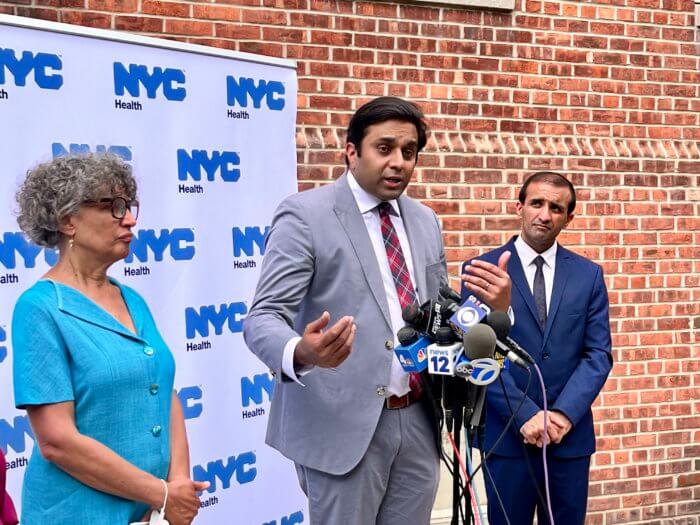
Vasan, who just took over leadership of the Health Department in March, is navigating the monkeypox outbreak at a time when he is juggling an ongoing coronavirus pandemic that continues to demand attention. When asked about the Health Department’s initial response to the monkeypox outbreak, Vasan recalled seeing the “warning signals” when it was circulating among men who have sex with men in Europe in the spring — and he said health officials were tracking it at the time.
“Based on what I saw in Europe and what I was seeing in cases in Portugal and Spain and the UK, I was definitely concerned,” Vasan said.
Since monkeypox arrived here, Vasan has emphasized equity and expressed his desire to “meet people where they are” by reducing stigma and connecting with people without judgment. However, getting in touch with folks in the first place can be challenging: Some other cities, such as Chicago, have opened pop-up vaccine clinics at known establishments like bathhouses, but New York City is not known for centralized bathhouses these days. Will the city be able to reach networks of men who have sex with men at sex parties or other gatherings?
For now, the city has three vaccine clinics — two in Manhattan and one in Queens — but conversations about where to place any additional clinics will hinge on the availability of vaccines. Vasan said the Health Department is “exploring” other spots now, including eventually bringing the vaccines to more boroughs, but “it’s all constrained by the amount of vaccine we have.”
“We are starting there, but if we were to have more vaccine, we would obviously broaden that approach,” he said.
There is very limited information about which groups among men who have sex with men are getting sick with monkeypox in New York City. The city acknowledged that the decision to open the first clinic in Chelsea was fueled by the emergence of cases in that area. But the city is not unveiling further demographic-related data — such as age, race, or gender identity — until they have more statistics.
“We only have 267 cases as of today,” Vasan said. “It’s a lot relative to other jurisdictions, but in terms of population-wide analytics, it’s not a lot.”
Vasan attempted to shift the focus away from demographics and more towards the behaviors of individuals who could be at risk.
“I think the biggest message is anyone can get monkeypox,” Vasan said. “This outbreak is currently concentrated among men who have sex with men. But it’s less about identity than it is about behaviors, which is why we include trans, gender non-conforming, and non-binary people in our inclusion criteria for vaccine.”
The lingering questions about vaccine availability, meanwhile, also surround those who have been fortunate enough to receive a first vaccine and are now wondering whether they will be getting their second dose, as intended, 28 days after the first jab. Vasan said there are “active discussions” about that at the federal level, but said the city is, for now, working with the two-dose regimen approved by the Food and Drug Administration.
Vasan also addressed questions about whether people who have received the smallpox vaccine, which was generally discontinued in the US in 1972, have any lingering protection against monkeypox.
“There is no evidence that the smallpox vaccine actually provides any meaningful level of protection against monkeypox,” said Vasan, who noted that it just has not been studied enough to draw conclusions.
The Jynneos vaccine, though, has been studied — and Vasan said trials have shown that it is 85% effective “against getting and transmitting” monkeypox.
Vasan did not directly say whether or not New York City has seen any hospitalizations due to monkeypox complications, but there have been no deaths and he described it as “non-fatal.” Still, he noted that some people who have gotten sick have had very painful experiences. It can lead to scarring and long-term dermatological issues, he said.
“I want to validate the fear and worry people have,” he said. “It’s appropriate to be concerned and appropriate to be pushing for care.”
The next round of monkeypox vaccine appointments will come later in the week, according to the city’s Department of Health. The exact date and time has not yet been announced.
Those looking to get vaccinated can receive appointment alerts and other updates by texting MONKEYPOX to 692-692 or visiting nyc.gov/monkeypox.

